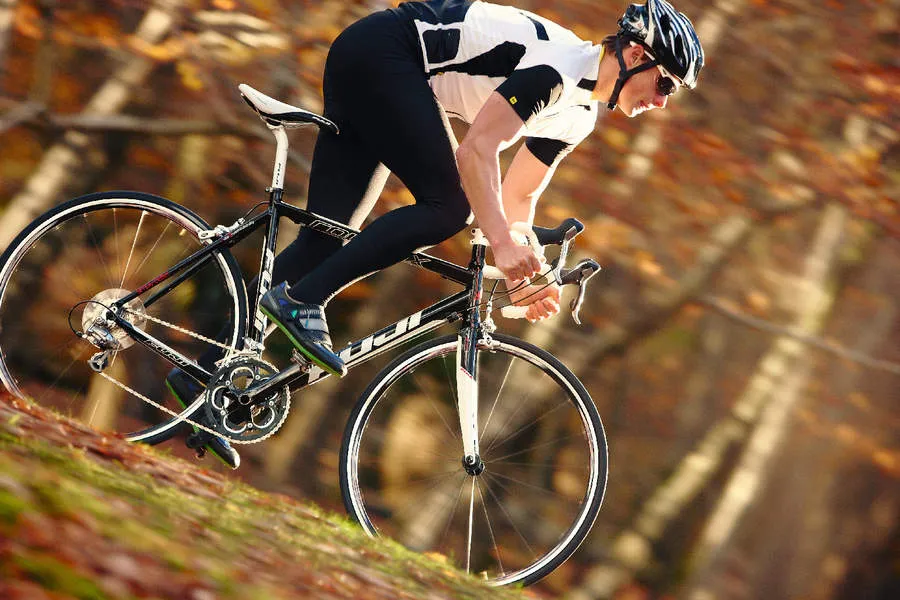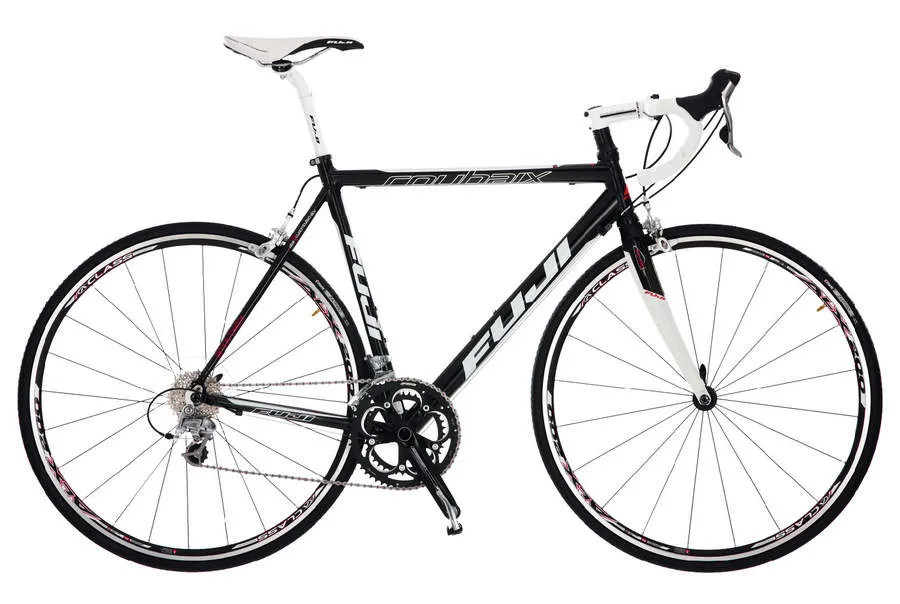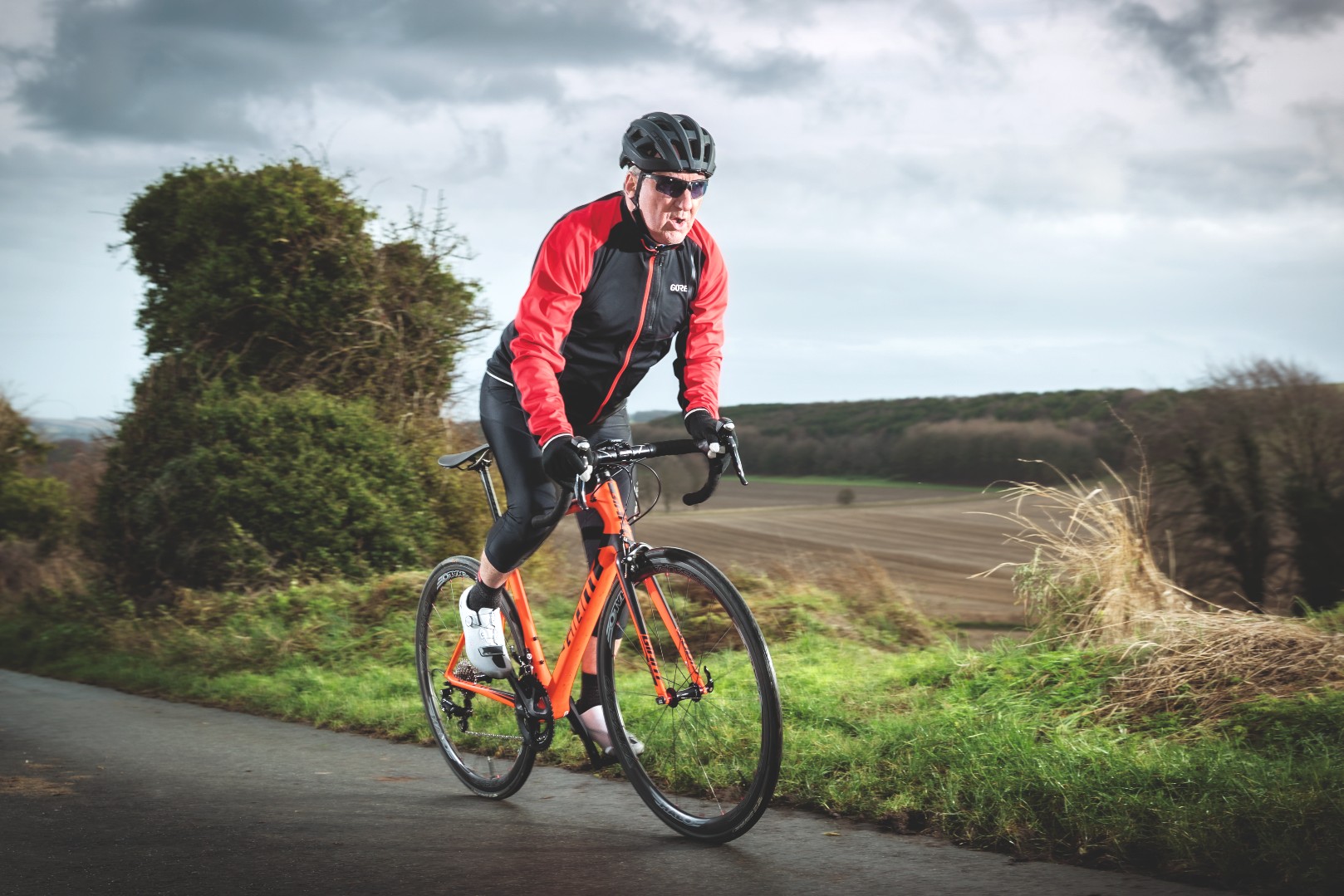Fuji are part owned by the Taiwanese Ideal Bike Corporation, who make machines for numerous better-known brands, so there’s plenty of bike-building experience in the Roubaix’s DNA.
It has a TIG-welded aluminium frames and carbon fork, Shimano 105 groupset with FSA standard chainset, and a load of own-brand componentry.
- Frame: Typically robust and durable Taiwanese-made aluminium frame (7/10)
- Handling: Not quite up with the best, but it's surefooted and inspires confidence (7/10)
- Equipment: Shimano 105 does its usual sterling work. Elsewhere, Fuji-branded kit predominates, but we weren’t all convinced by white components (8/10)
- Wheels: It’s good to see genuine DT stainless spokes and the low spoke count helps to keep the weight down (8/10)
The Fuji is well made, has neutral handling and is a vice-free zone. None of our test riders had any qualms taking it down twisty descents at full tilt, even if getting back up again and riding on the flat wasn’t quite as thrilling as on the Cannondale CAAD9 we tested alongside it.
Just about everyone agreed that it provided a livelier and more enjoyable ride than the similar-looking Focus Variado Expert. The weight difference between the Focus and the Fuji isn’t huge, but going uphill the difference felt more than the figures would suggest. The Fuji was just that bit more responsive, the handling a little sharper, the ride a little plusher.
As for the kit, Shimano’s 10-speed 105 groupset proved to be a reliable performer. The Fuji's standard double chainset will suit you well if your preference is for higher gearing and the kind of riding that you do doesn’t involve too many challenging hills.
As with most bikes at this price the wheels are functional rather than flashy. Taiwanese company Alex supply the rims and hubs, which are well sealed, prolonging longevity by keeping the elements at bay, and it’s good to see genuine DT stainless spokes on what is a fairly cheap set of hoops. In our experience Vittoria’s Zaffiro tyres are hardwearing, and proved popular with testers. They’re not feathery-light racing tyres, but they should last well as you pile on the miles.
It does seem that with 2010 bikes, as with many of 2009’s, white is still the new black. The Fuji has a white seatpost and handlebar, and though they look great in the showroom, after the photoshoot and a few weeks of testing – especially with the seatpost being shifted a few times to cope with the slightly different heights of the riders – the silvery aluminium was starting to show through. For us, the old black was quite good enough.


